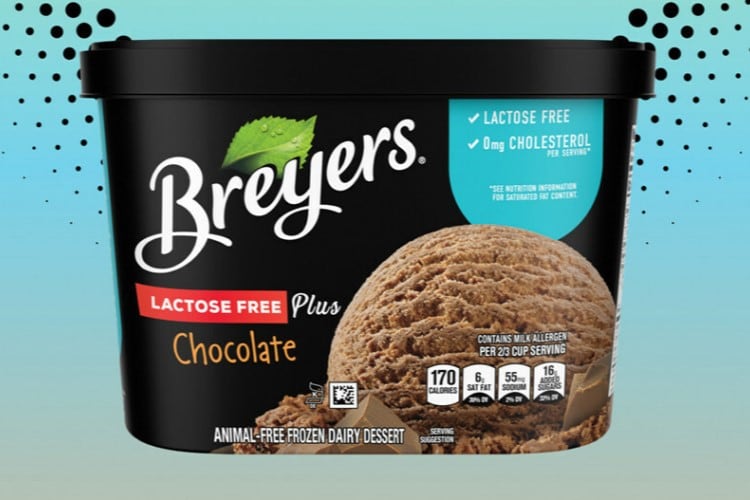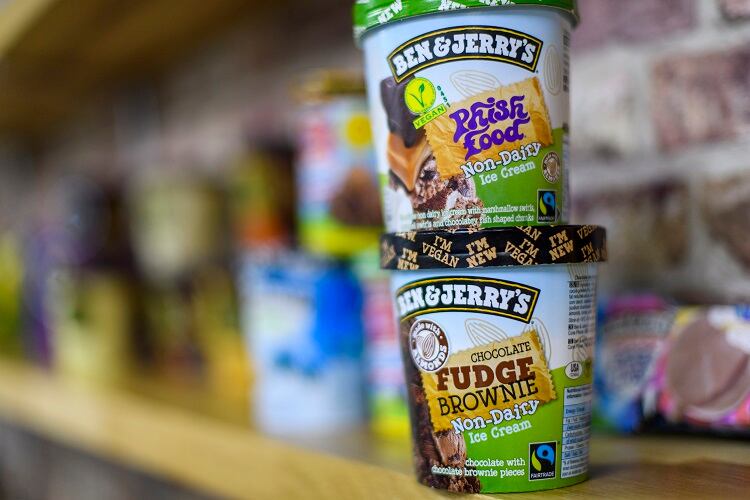Unilever is set to spin off its ice cream division and initiate a cost-cutting productivity plan that would result in 7,500 job losses.
The spin-off, to be completed by 2025, would leave Unilever with a portfolio comprising four business groups across Beauty & Wellbeing, Personal Care, Home Care, and Nutrition.
The four divisions have ‘complementary routes’ to market as well as in terms of R&D, manufacturing and distribution systems, while Ice Cream has ‘distinct characteristics’ including a supply chain and point of sale that support frozen goods, a different channel landscape, more seasonality, and greater capital intensity.
“The Board believes Unilever should be increasingly focused on a portfolio of unmissably superior brands with strong positions in highly attractive categories that have complementary operating models,” the company said in a statement.
“This is where the company can most effectively apply its innovation, marketing and go-to-market capabilities. Ice Cream has a very different operating model, and as a result the Board has decided that the separation of Ice Cream best serves the future growth of both Ice Cream and Unilever.”
The separation is likely to be a demerger, though other options will also be considered. Unilever’s productivity program is expected to more than offset operational dis-synergies from the separation, though the exact costs will become clear at a later stage.
Separation activities and the execution of the productivity program will begin immediately, the company said, with Unilever’s resources re-focused on its ‘strongest, global or scalable’ brands. “These will have the capability to drive category expansion and deliver accelerated, sustainable levels of growth and improved profitability,” the company said.
“After separating Ice Cream and implementing the productivity programme, Unilever will have a structurally higher margin. Post-separation, Unilever aims to deliver mid-single digit underlying sales growth and modest margin improvement.”
A giant under pressure
Unilever has been under pressure to address soaring costs and sluggish performance in the last few years while a failed takeover attempt on GlaxoSmithKline’s consumer health business in 2022 further unsettled investors.
Under new CEO Hein Schumacher, the consumer goods giant renewed its growth ambitions by announcing its productivity program, the Growth Action Plan, last October. The program is designed to save costs of around €800m/$866m over the next 3 years and will result in the loss of around 7,500 ‘predominantly office-based roles’. These reorganization activities will cost the group around 1.2% of its turnover over the next 3 years.
The spin-off of the Ice Cream division - which includes globally-recognizable brands such as Ben & Jerry’s and Magnum, but has underperformed as consumers traded down due to inflationary pressures – underlines the company’s focus on improving productivity.
In 2023, the ice cream division recorded the lowest turnover (€7.9bn/$8.5bn) among Unilever’s core categories of Beauty & Wellbeing (€12.5bn/$13.5bn), Personal Care (€13.8bn/$14.9bn), Home Care (€12.2bn/$13.2bn), and Nutrition (€13.2bn/$14.3bn).
The division’s underlying sales growth was also disappointing at 2.3%, with price growth of 8.8% and a volume decline of 6.0%.
Peter ter Kulve, president for Ice Cream, admitted that last year had been ‘challenging’ for the category, adding that Unilever was focused on expanding operating profit and recovering its global market share. The group was planning to achieve this by building its brands, which include Ben & Jerry’s, Wall’s, Magnum and Carte D’Or; accelerating market development in emerging markets, and increasing performance and productivity.
Ice cream has also been a source of greenhouse gas emissions for the group, with Unilever trialing several possible solutions to reduce ice cream’s climate impact – most recently, by increasing the temperature in its ice cream freezers and offering its competitors to do the same in order to drive down emissions. The group also launched its first animal-free ice cream in the US under Breyers.
Now, the CPG major insists the separation of the division would ‘assist Unilever’s management to accelerate the implementation of its Growth Action Plan…, which is focused on doing few things, better, with greater impact to drive consistent and strong topline growth, enhance productivity and simplicity, and step up Unilever's performance culture’.
Ian Meakins, Chair of Unilever, said: "The Board is determined to transform Unilever into a higher-growth, higher-margin business that will deliver consistently for all stakeholders. Improving our performance and sharpening our portfolio are key to delivering the improved results we believe Unilever can achieve. The separation of Ice Cream and the delivery of the productivity programme will help create a simpler, more focused, and higher performing Unilever. It will also create a world-leading ice cream business, with strong growth prospects and an exciting future as a standalone business.”
Hein Schumacher, CEO of Unilever, added: “Under the Growth Action Plan we have committed to do fewer things, better, and with greater impact. The changes we are announcing today will help us accelerate that plan, focusing our business and our resources on global or scalable brands where we can apply our leading innovation, technology and go-to-market capabilities across complementary operating models.
“Simplifying our portfolio and driving greater productivity will allow us to further unlock the potential of this business, supporting our ambition to position Unilever as a world-leading consumer goods company delivering strong, sustainable growth and enhanced profitability. We are committed to carrying out our productivity programme in consultation with employee representatives, and with respect and care for those of our people who are impacted.”




